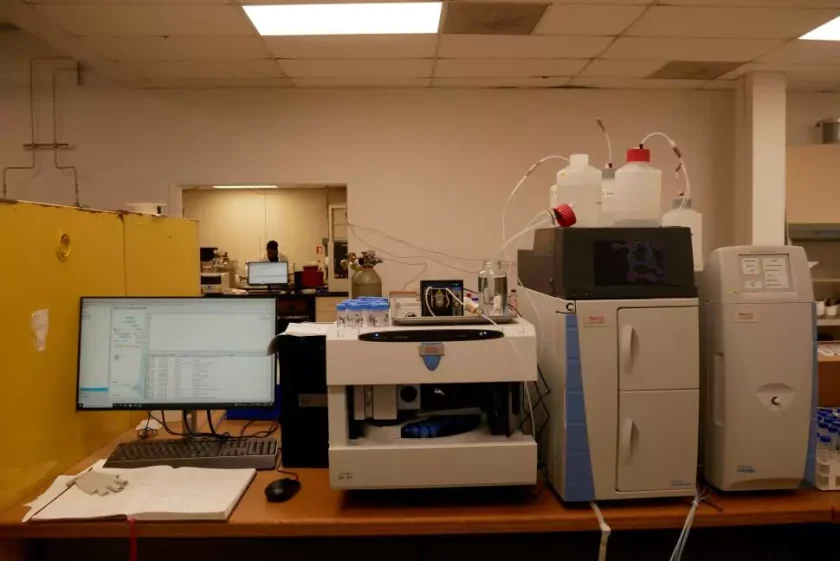Produced Water Analysis Testing Services using ICP-OES
Benchmark Lab excels in delivering comprehensive produced water analysis testing services, utilizing the sophisticated technique of Inductively Coupled Plasma Optical Emission Spectroscopy (ICP-OES) to achieve accurate results. Our facility is equipped with the most advanced technology, including the PerkinElmer Avio 200 ICP OES and Dionex Integrion HPIC system, to offer precise and reliable produced water analysis services tailored for the oilfield industry.

In-depth Oilfield Brine Analysis for Oilfield Applications:
Benchmark Lab excels in Produced Water Analysis, serving the oil and gas sectors with precise assessments critical for environmental compliance and operational safety. Our advanced techniques, including ICP-OES and IC analysis, allow for the accurate detection of heavy metals (like lead, mercury, and arsenic), organic acids, and salinity/inorganic ions in produced water. These insights are vital for managing corrosion, improving water quality, and selecting the most effective treatment and disposal strategies. Our commitment ensures the safe management of produced water, underlining our dedication to environmental stewardship and operational excellence.Advantages of Benchmark Lab's water composition Testing Services:
Benchmark Lab excels with a unique advantage in water analysis, starting with Elemental Analysis and extending to advanced HPLC, GC, and scale loop testing as needed. This ensures compliance with strict environmental standards and enables optimized water treatment processes for cost efficiency and reduced environmental impact. Our detailed chemistry analysis identifies corrosive substances, guiding effective corrosion control to protect infrastructure and lessen downtime. Our comprehensive approach not only boosts operational efficiency but also underscores our commitment to environmental protection. This integrated testing capability sets Benchmark Lab apart, offering thorough insights for better water management.Tailored Water Composition Analysis for the Bakken Formation:
The Bakken Formation presents unique challenges due to its specific geology and produced water characteristics. Benchmark Lab provides specialized water ionic composition analysis services for this region, adapting our testing methods to offer precise insights into Bakken-produced water.Frequently Asked Questions
Benchmark Lab's produced water analysis plays a pivotal role in identifying the factors contributing to corrosion and scale formation in oilfield operations. Through our comprehensive testing for salinity, ions, and specific compounds, we can predict the tendency of produced water to cause scaling or corrosion. This insight enables operators to implement targeted treatments and prevention strategies, safeguarding infrastructure and optimizing production efficiency by mitigating the risks associated with scale buildup and corrosive damage.
enchmark Lab specializes in comprehensive produced water analysis testing services, utilizing advanced technologies such as ICP-OES for heavy metals detection, and precise methods for organic compounds analysis. Our expertise also extends to salinity and ions testing, radioactivity assessment, corrosion potential evaluation, and microbial analysis, ensuring oilfield produced water meets environmental and safety standards.
ICP-OES (Inductively Coupled Plasma Optical Emission Spectroscopy) significantly enhances heavy metals detection in produced water by providing high precision and sensitivity. This technology enables us to accurately identify trace levels of hazardous metals, such as lead and arsenic, crucial for environmental compliance and the safety of oil and gas operations.
Organic compounds analysis is critical for identifying harmful constituents like BTEX (benzene, toluene, ethylbenzene, xylene) and VOCs (Volatile Organic Compounds) in produced water. This analysis ensures that oilfield operators can implement necessary treatment measures to protect public health and comply with stringent environmental regulations.
Quick Contact
If you have any questions or need help, feel free to contact with our team.
Call Us Today:
Send Us Email:
©2024 , All Rights Reserved. Benchmark Lab


